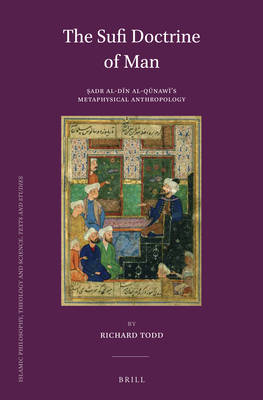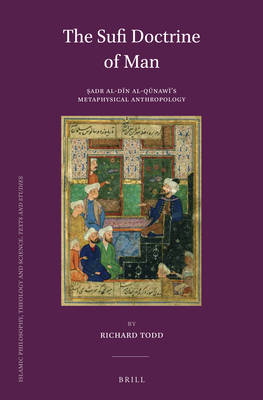
- Afhalen na 1 uur in een winkel met voorraad
- Gratis thuislevering in België vanaf € 30
- Ruim aanbod met 7 miljoen producten
- Afhalen na 1 uur in een winkel met voorraad
- Gratis thuislevering in België vanaf € 30
- Ruim aanbod met 7 miljoen producten
Zoeken
€ 225,95
+ 451 punten
Omschrijving
In The Sufi Doctrine of Man, Richard Todd examines the life and thought of Ibn 'Arabī's chief disciple, Ṣadr al-Dīn al-Qūnawī (13th century C.E.). Making use of manuscript sources, he analyzes and contextualizes Qūnawī's esoteric vision of the nature and purpose of human existence, a doctrine which incorporates core elements of Qūnawī's metaphysics, cosmology, psychology, and eschatology. Qūnawī's thought is placed in relation to Ibn 'Arabī's and that of the Ikhwān al-Ṣafā', and his interaction with the Avicennian tradition is explored by focusing on his dialogue with the philosopher al-Ṭūsī. Although not as famous as his master, Qūnawī is shown to have been a sophisticated metaphysician in his own right, who had a major impact on Sufi thought.
Specificaties
Betrokkenen
- Auteur(s):
- Uitgeverij:
Inhoud
- Aantal bladzijden:
- 246
- Taal:
- Engels
- Reeks:
- Reeksnummer:
- nr. 90
Eigenschappen
- Productcode (EAN):
- 9789004271234
- Verschijningsdatum:
- 28/05/2014
- Uitvoering:
- Hardcover
- Formaat:
- Genaaid
- Afmetingen:
- 160 mm x 239 mm
- Gewicht:
- 521 g

Alleen bij Standaard Boekhandel
+ 451 punten op je klantenkaart van Standaard Boekhandel
Beoordelingen
We publiceren alleen reviews die voldoen aan de voorwaarden voor reviews. Bekijk onze voorwaarden voor reviews.








